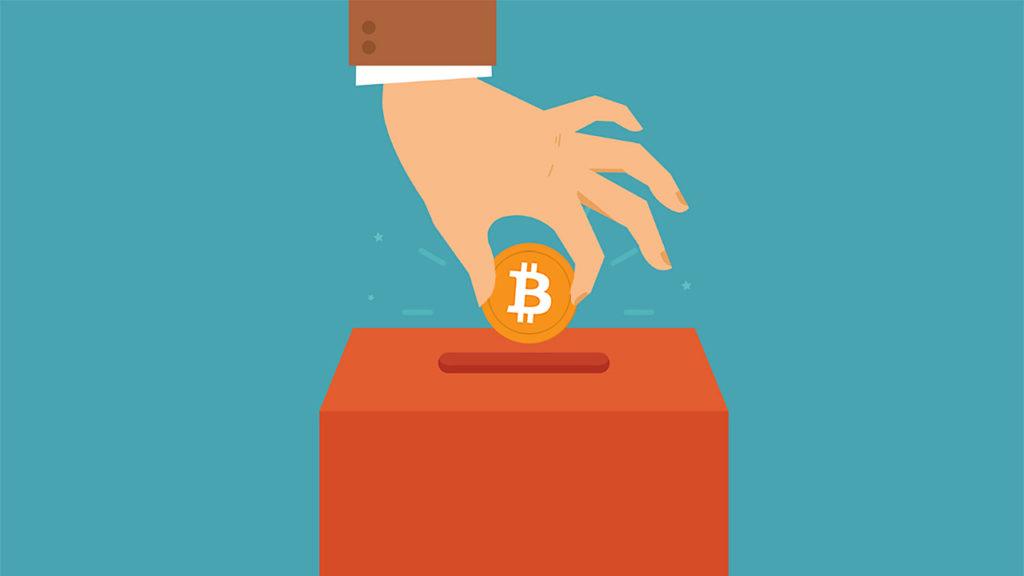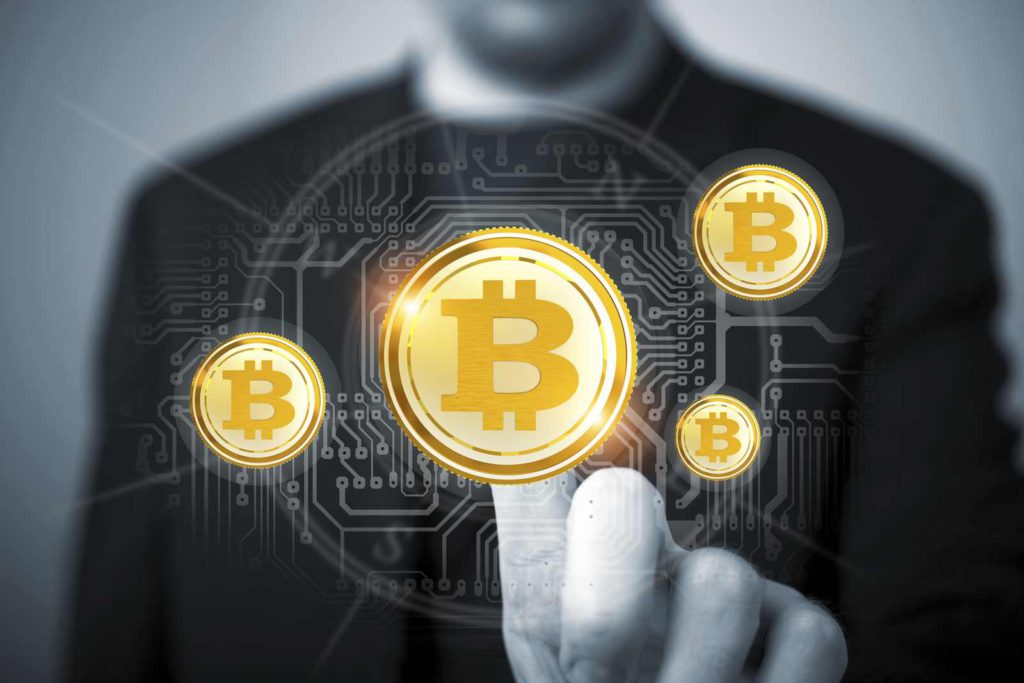The Role Of Crypto Payment Gateways In Decentralized Finance (DeFi)

Decentralized Finance (DeFi) has emerged as a transformative force in the financial landscape, reshaping traditional notions of banking, lending, and transactions. At the heart of this revolution lies the integration of cryptocurrency payment gateways, providing a bridge between traditional finance and the decentralized world of blockchain. In this comprehensive guide, we explore the significance of crypto payment gateways in DeFi, their functionalities, and the impact they have on fostering a more inclusive and accessible financial ecosystem.
Understanding Crypto Payment Gateways

1. Defining Crypto Payment Gateways:
Crypto payment gateways act as intermediaries between merchants and customers, facilitating the seamless acceptance of cryptocurrency payments. These gateways play a crucial role in bridging the gap between traditional fiat currencies and digital assets in the realm of decentralized finance.
2. Integration of Cryptocurrencies:
Crypto payment gateways enable merchants to accept a variety of cryptocurrencies as payment, ranging from well-established tokens like Bitcoin and Ethereum to a myriad of altcoins. This integration diversifies payment options, providing users with choices beyond traditional fiat currencies.
The Key Components of Crypto Payment Gateways

Crypto payment gateways are essential infrastructure for businesses looking to accept payments in cryptocurrencies. These gateways facilitate seamless and secure transactions, enabling merchants to broaden their payment options and cater to the growing user base of cryptocurrency holders. Here’s a detailed exploration of the key components of crypto payment gateways:
1. Cryptocurrency Support:
- Multi-Currency Compatibility: A robust crypto payment gateway supports a variety of cryptocurrencies, allowing merchants to accept payments in different digital assets. Commonly supported cryptocurrencies include Bitcoin (BTC), Ethereum (ETH), Litecoin (LTC), and others.
2. User Interface and Experience:
- Merchant Dashboard: An intuitive merchant dashboard provides an easy-to-use interface for businesses to manage transactions, view analytics, and customize settings. A user-friendly dashboard enhances the overall experience for merchants.
3. Checkout Integration:
- API Integration: A secure API that seamlessly integrates with the merchant’s website or application, enabling the incorporation of crypto payments into the checkout process. API documentation should be comprehensive to facilitate smooth integration.
4. Security Measures:
- End-to-End Encryption: Robust encryption protocols to secure data transmission and protect sensitive information during the payment process.
- Two-Factor Authentication (2FA): An additional layer of security for merchant accounts, reducing the risk of unauthorized access.
- Address Verification System (AVS): Verifying the billing address provided by the user to enhance transaction security.
5. Payment Processing:
- Instant Confirmation: Real-time confirmation of transactions, ensuring that merchants receive prompt notification of successful payments.
- Confirmation Thresholds: Customizable confirmation thresholds to mitigate the risk of double-spending attacks and enhance transaction reliability.
6. Conversion Tools:
- Real-Time Currency Conversion: Tools that enable users to view and pay in their preferred cryptocurrency, while merchants receive payments in their desired fiat currency. This helps manage price volatility.
- Dynamic Pricing: Allows merchants to set dynamic pricing based on real-time exchange rates, ensuring fair and accurate pricing for users.
7. Compatibility with E-Commerce Platforms:
- Plugins and Extensions: Ready-made plugins or extensions for popular e-commerce platforms like Shopify, WooCommerce, Magento, and others. This simplifies integration for merchants using these platforms.
8. Wallet Compatibility:
- Wallet Support: Compatibility with various cryptocurrency wallets to facilitate payments. This includes support for both software wallets (desktop and mobile) and hardware wallets for added security.
9. Settlement and Payouts:
- Fiat Settlement: The ability for merchants to receive settlements in fiat currency, allowing them to manage their financial operations in their preferred currency.
- Automated Payouts: Automated processes for the conversion and payout of cryptocurrencies to the merchant’s designated wallet.
10. Compliance and Regulatory Features:
- KYC/AML Compliance: Incorporation of Know Your Customer (KYC) and Anti-Money Laundering (AML) procedures to ensure compliance with regulatory requirements.
- Tax Reporting Tools: Tools that assist merchants in generating tax reports related to cryptocurrency transactions.
11. Customer Support and Documentation:
- Responsive Support: Availability of customer support to assist merchants with queries, troubleshooting, and technical issues.
- Comprehensive Documentation: Well-documented resources, including FAQs, guides, and troubleshooting materials, to help merchants integrate and use the payment gateway effectively.
12. Scalability and Reliability:
- Scalable Infrastructure: A robust and scalable infrastructure capable of handling increasing transaction volumes without compromising performance.
- Redundancy Measures: Implementing redundancy measures and failover mechanisms to ensure uninterrupted service availability.
13. Analytics and Reporting:
- Transaction Analytics: Comprehensive analytics tools that provide insights into transaction volumes, user behavior, and other relevant data.
- Custom Reports: The ability for merchants to generate custom reports based on specific parameters.
14. Compliance with Payment Standards:
- PCI DSS Compliance: Adherence to Payment Card Industry Data Security Standard (PCI DSS) compliance to protect payment card data.
- GDPR Compliance: Compliance with General Data Protection Regulation (GDPR) standards to safeguard user privacy.
15. Integration with Fiat Payment Systems:
- Fiat Onramps: Integration with fiat payment gateways to facilitate the conversion of fiat currency to cryptocurrency for users who are new to the crypto space.
16. Education and Onboarding Support:
- Educational Resources: Provision of educational materials for both merchants and users to understand the benefits, risks, and best practices associated with cryptocurrency payments.
- Onboarding Assistance: Support for merchants during the onboarding process, guiding them through the integration steps and providing assistance as needed.
A well-rounded crypto payment gateway encompasses a variety of components to ensure a seamless and secure payment experience for both merchants and users. From cryptocurrency support and secure processing to user-friendly interfaces and compliance features, these components collectively contribute to the efficiency and reliability of crypto payment gateways in the rapidly evolving world of digital transactions.
Also, read – Rise of Crypto Payments In Startups: Is Crypto The Future?
The Role of Crypto Payment Gateways in Decentralized Finance (DeFi)

Crypto payment gateways play a crucial role in the decentralized finance (DeFi) ecosystem by providing the infrastructure needed to integrate cryptocurrencies into financial services. DeFi, as a rapidly evolving sector within the blockchain space, relies on seamless and secure payment solutions to enable decentralized lending, borrowing, trading, and other financial activities. Here’s a detailed exploration of the role of crypto payment gateways in DeFi:
1. Onboarding Users to DeFi:
- Simplified Access: Crypto payment gateways serve as a bridge between traditional finance and DeFi by simplifying the onboarding process for users. They enable individuals to convert fiat currency into cryptocurrencies, facilitating entry into the DeFi space.
- User-Friendly Interfaces: With intuitive user interfaces, payment gateways make it easier for individuals with limited technical knowledge to navigate the complexities of DeFi protocols.
2. Integration with DeFi Platforms:
- Seamless Protocol Integration: Payment gateways seamlessly integrate with various DeFi platforms, allowing users to directly interact with lending protocols, decentralized exchanges, liquidity pools, and other DeFi services.
- Smart Contract Interaction: By supporting interactions with smart contracts, payment gateways enable users to participate in DeFi activities such as providing liquidity, borrowing, and earning interest.
3. Support for DeFi Tokens:
- Token Compatibility: Crypto payment gateways support a wide range of DeFi tokens, including governance tokens, stablecoins, and other assets native to decentralized platforms.
- Real-Time Token Conversion: Users can convert their fiat currency into specific DeFi tokens in real-time, providing them with the assets needed to engage with various DeFi protocols.
4. Enhanced Security for DeFi Transactions:
- Secure Transaction Processing: Crypto payment gateways prioritize security in DeFi transactions by implementing robust encryption, secure APIs, and adherence to industry standards like PCI DSS.
- Reduced Risks: Security measures, such as two-factor authentication (2FA) and address verification, mitigate risks associated with unauthorized access and fraudulent transactions in DeFi.
5. Facilitating Liquidity Provision:
- Conversion of Fiat to Liquidity Tokens: Payment gateways enable users to convert fiat into liquidity tokens, allowing them to participate in decentralized liquidity pools and contribute to the overall liquidity of DeFi platforms.
- Integration with Automated Market Makers (AMMs): Integration with AMMs ensures that users can seamlessly provide liquidity and earn fees within DeFi decentralized exchanges.
6. Enabling Yield Farming and Staking:
- Token Staking Services: Crypto payment gateways facilitate the staking of tokens within DeFi platforms, allowing users to earn rewards through yield farming and staking activities.
- User-Friendly Yield Strategies: Users can easily explore and participate in various yield farming strategies and staking opportunities through the interfaces provided by payment gateways.
7. Cross-Chain Compatibility:
- Interoperability: Payment gateways with cross-chain compatibility enable users to move assets seamlessly between different blockchain networks, supporting DeFi protocols operating on various blockchains.
- Access to Diverse DeFi Ecosystems: Users can access a broader range of DeFi applications and services by utilizing payment gateways that support interoperability.
8. Regulatory Compliance:
- KYC/AML Compliance: Payment gateways play a crucial role in ensuring regulatory compliance within the DeFi space. Integration with Know Your Customer (KYC) and Anti-Money Laundering (AML) procedures helps meet regulatory requirements.
- Transaction Reporting: Compliance features in payment gateways assist DeFi platforms in generating transaction reports for regulatory purposes, contributing to the legitimacy of decentralized financial activities.
9. Educational Resources and Support:
- User Education: Payment gateways often provide educational resources to help users understand DeFi concepts, risks, and best practices.
- Customer Support: Offering customer support for users engaging with DeFi through payment gateways enhances the overall user experience and confidence in utilizing decentralized financial services.
10. Cross-Border Payments:
- Global Accessibility: Crypto payment gateways enable global access to DeFi services, allowing users from different parts of the world to participate in decentralized finance.
- Borderless Transactions: Users can engage in cross-border transactions without the need for traditional banking systems, promoting financial inclusion and accessibility.
In conclusion, crypto payment gateways play a pivotal role in the growth and accessibility of DeFi by providing the necessary infrastructure for users to seamlessly interact with decentralized financial services. From onboarding users to supporting a wide range of tokens and facilitating secure transactions, payment gateways contribute to the expanding landscape of decentralized finance, making it more user-friendly, secure, and globally accessible.
Challenges and Considerations
1. Regulatory Compliance:
The regulatory landscape surrounding cryptocurrencies is evolving. Crypto payment gateways must navigate various jurisdictions and comply with regulatory requirements, ensuring the legality and legitimacy of their operations.
2. Security Concerns:
Given the irreversible nature of cryptocurrency transactions, security is of paramount importance. Crypto payment gateways must continuously enhance their security measures to protect users and merchants from potential threats such as hacking and fraud.
3. Volatility Management:
Cryptocurrency prices are known for their volatility. Crypto payment gateways must implement effective mechanisms to manage this volatility, protecting both merchants and users from unexpected market fluctuations.
The team of @CollateralDefi will revolutionise #DeFi payment gateways. The question of payments with #crypto is getting more and more important and $COLL has all in one solution! Check it out @NZaburov, @Jennife75960931
— Crypto Fan ♥️ Memecoin (@just_crypto_fan) March 24, 2021
The Future of Crypto Payment Gateways in DeFi

As decentralized finance continues to evolve, the role of crypto payment gateways becomes increasingly pivotal. The future holds exciting possibilities, including:
1. Integration with Central Bank Digital Currencies (CBDCs):
As central banks explore the concept of digital currencies, crypto payment gateways may play a role in integrating these CBDCs into the broader cryptocurrency ecosystem.
2. Enhanced Privacy Features:
Future iterations of crypto payment gateways may prioritize enhanced privacy features, aligning with the principles of financial privacy advocated by many in the DeFi community.
3. Interoperability Across Blockchains:
With the growth of multiple blockchain networks, crypto payment gateways may evolve to provide interoperability, allowing users to seamlessly transact across different blockchain ecosystems.
4. Further Streamlining of User Experience:
The ongoing refinement of user interfaces and the simplification of processes are likely to make crypto payment gateways even more accessible to a broader audience.
Conclusion: Navigating the Future of Finance
Crypto payment gateways stand at the intersection of traditional finance and the decentralized future envisioned by DeFi. Their role in facilitating seamless transactions, enhancing financial inclusion, and bridging the gap between fiat and cryptocurrencies is integral to the evolution of decentralized finance. As these gateways continue to innovate and adapt, they contribute significantly to the broader mission of reshaping the global financial landscape, making it more accessible, efficient, and inclusive for users around the world.
Related posts
Editor's Choice
- BlockDAG Set To Reach $20 by 2027, Exceeding Polkadot’s 2024 Growth and ADA’s Price Rise
- BlockDAG Outshines Dogecoin Value & Polygon Price With Lunar Keynote Teaser & 30,000x ROI Potential
- Top 9 Historical Moments In The Ethereum Scalability Story And The Monumental Evolution Of Rollups
- New ICO Projects With Highest Upside Potential: DTX Exchange, BlockDAG, and Kangamoon Presale
- Top 10 Ways Of Making Ethereum Layer 2 Solutions Surprisingly Cost Effective
Hottest Blockchain News Daily
Get our latest posts and announcements in your inbox.
[cn-social-icon attr_class=”social-share-side”]




























































